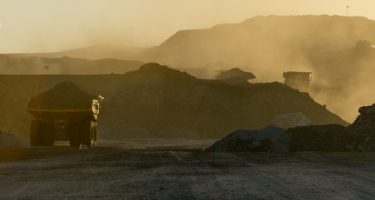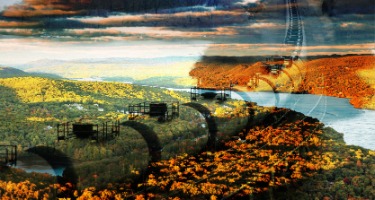Christine Duchaine and Nicolas Dubé
Sodavex Law Firm
2016
1. INTRODUCTION
In the fall of 2015, a large and important investigation into corruption and tax evasion by the Canada Revenue Agency (CRA), known as the "Legal Project," was completed under the watchful eye of the media and the public.1 The case is Agence du revenu du Québec v. BT Céramique inc.2 (hereinafter "BT Céramiques").
In this case, the Honourable Justice Dominique Larochelle of the Court of Québec rendered a resounding decision in which she declared inadmissible the evidence gathered by the Agence du revenu du Québec (hereinafter [the]ARQ) that had been used to lay more than 1,000 charges under the Income Tax Act3 against former CRA officials and several construction contractors, including Mr. Tony Accurso.
Surprisingly, it was following a search of the CRA's offices that the ARQ obtained its evidence. However, it is important to note that this same evidence was originally collected by the CRA as part of a tax audit that led to search warrants. According to B.T. Ceramics and four other applicants, this was not a simple tax audit, but rather an investigation. The latter then argued that the ARQ's evidence initially collected by the CRA should be excluded on the basis of sections 8 and 24 of the Canadian Charter of Rights and Freedoms (hereinafter the "Canadian Charter"),4 while the ARQ claimed the right to use it, arguing that it had obtained the CRA's evidence through valid judicial authorizations and compliant searches.
According to Justice Larochelle, the CRA conducted a criminal investigation under the guise of a tax audit, thereby violating the applicants' rights under the Canadian Charter. This decision confirms once again that courts can go so far as to exclude evidence that is "significant, reliable and indispensable to support serious offences" where it has been collected in an unconstitutional manner and that the exclusion of such evidence is the appropriate remedy in light of the infringement.5
This judgment will have major repercussions on the entire investigation conducted by the ARQ since the other co-accused will only have to assert the same points of law and fact to demand the exclusion of the evidence gathered against them.
In her analysis, Larochelle J.A. applied the rule of principle enunciated by the Supreme Court of Canada in R. v. Jarvis6 ('Jarvis'):
When CRA officials no longer verify the tax liability, but attempt to establish the taxpayer's criminal liability under art. 239, there is an adversarial relationship between the state and the individual. As a result, the protections guaranteed by the Charter apply. In this case, the investigators must give an appropriate warning to the taxpayer. The coercive powers referred to in paras. 231.1(1) and 231.2(1) can no longer be used and search warrants must be obtained to continue the investigation.7
Seeking to determine at what point the relationship between the applicants and the state became adversarial, Larochelle J.A. examined the actions of the tax authorities and came to the following conclusion:
In conclusion, the applicants have shown convincingly that the predominant purpose of the audit procedure was to investigate the criminal liability of certain CRA officials as well as that of B.T. Ceramics Inc., Francesco Bruno and, incidentally, Ms. Palmerino and the shareholders. The investigation began as soon as the file was assigned for audit by Mr. St-Amand.8
As for the remedy sought by the applicants, namely the exclusion of evidence, Larochelle J.A. balanced the seriousness of the infringing conduct of the tax authorities, the impact of the violation on the applicants' rights under the Canadian Charter and society's interest in having the case decided on its merits.9 Once the exercise was completed, she concluded that the exclusion of the evidence was the appropriate remedy for the administration of justice.10
This recent decision is a clear example of an investigation that has been torn to pieces because of the confusion that still reigns between the powers of inspection and investigation granted to certain government officials responsible for the application and enforcement of certain laws.
Important lessons must be learned from this decision. First of all, it must be noted that the confusion between the concepts of investigation and inspection is still relevant. Secondly, this decision illustrates once again the fact that serious consequences can arise from this confusion and misuse of the powers vested in public servants.
Although they are drawn from a judgment rendered in a tax law context, these conclusions are equally relevant in environmental law since the Environment Quality Act11 (hereinafter the "EQA") grants broad powers to inspectors and investigators of the Ministère du Développement durable, de l'Environnement et de la Lutte contre les changements climatiques (hereinafter the "MDDELCC").
Like tax law, the environment is a highly regulated area. Moreover, it is an ever-evolving field, and the laws and regulations that aim to preserve the quality of the environment are constantly increasing and becoming more complex. In fact, many federal and provincial statutes give inspection and investigative powers to government officials responsible for preserving the quality of our environment. For example, the Canadian Environmental Protection Act,12 the Threatened or Vulnerable Species Act,13 the Pesticides Act,14 the Water Regime Act,15 the Natural Heritage Conservation Act,16 the Wildlife Conservation and Development Act,17 the Fisheries Act,18 the Species at Risk Act19 and the Migratory Birds Convention Act, 1994 all contain provisions for inspections and investigations. While it may be relevant to conduct a detailed analysis of the inspection and investigative powers granted by each of these statutes, the exercise would be lengthy and tedious, especially since the principles used to differentiate between these two concepts are the same, regardless of the statute and the area of law.
This is why in this article our analysis will be limited to the EQA and the demystification of the concepts of inspection and investigation under this Act. However, as mentioned above, the principles discussed in this article apply equally to other laws, such as the other environmental laws mentioned above, the laws on occupational health and safety, food, catering, language, consumer protection, etc.
Our analysis will lead us to define these two concepts, to determine the rights and obligations of inspectors and investigators responsible for the application and enforcement of the EQA, to define the scope of their powers, and to clearly identify the rights and obligations of the citizens inspected and investigated. We will also examine the relevance of distinguishing between these two concepts and identify the criteria for doing so, as well as the consequences that may result, both for the citizen and for the State. In closing, we will share with you our recommendations on how best to manage an inspection or investigation under the EQA.
However, before getting to the heart of the matter, we think it would be useful to clarify the terminology used by the case law, more particularly by the Supreme Court of Canada in certain cases. Indeed, in the course of our analysis, we found that the terms "investigation" and "search" are sometimes used by courts interchangeably and interchangeably. However, as we shall see in more detail below, these words do not have the same meaning. An investigation is not a search; The former being broader than the latter since an investigation can exist without the need for a search. In a nutshell, a search is the act of entering a place to seize something. The search is usually carried out in the course of an investigation, but powers similar to a search are also vested in the investigators, as will be seen below. It is therefore unfortunate that these terms are used interchangeably in some decisions, which has the effect of adding to the confusion. For the purposes of this article, therefore, we shall attempt to avoid this additional confusion and to make the necessary distinctions when dealing with an investigation or search.
That said, the Supreme Court of Canada has emphasized the importance of distinguishing between inspection and investigation,21 with which we are in complete agreement. We hope that this article can equip the reader and, ultimately, avoid confusion and abuse of power.
This article has been translated from French.




























